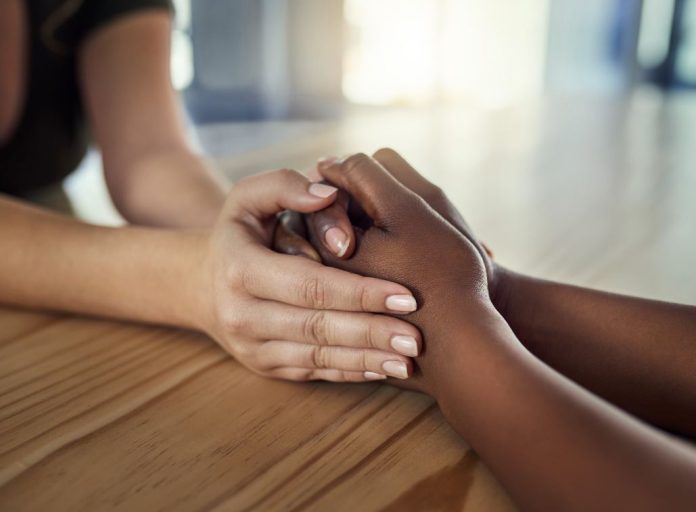Being compassionate is not just having a feeling of sorrow for someone but it is to want to see things changed. Compassion is something that will cause someone to spring into action and make a difference in the world.
We have different reasons that we are attracted to people and most of the time this has to do with your unconscious thinking. There are different reasons that people are drawn to one another and even though we can know some of these reasons, other reasons are hidden deep down.
Being attracted to some people is an experience that we are seeking, and this happens from the desires that come to our mind. This can be a desire to be healed from wounds that are buried deep down inside of us.
When we meet people and we feel their love and compassion, this can be a reason that we want to be close to them. Some people bring us peace just by being around them and this might be a relationship you are seeking.
Many of us have things that have happened to us that were traumatic. Sometimes this happened when we were children, and it may have caused you to have low self-esteem and to not be able to trust ourselves or even others. Even those that get married might still not feel whole unless they get the healing that they need.
People that get married often need to have an emotional healing because of past wounds. When we get to a place of trust for our partner, the pain that has happened in the past can come to light and it can be something that has to be dealt with. The things that we have kept hidden will all of a sudden be exposed and this will require acceptance and compassion from those around us.
Finding your sense of self an happen if you have a good family but if the family is shallow and fake, it can be a place that leaves you feeling abused or abandoned. Other people have experienced neglect, punishment, rejection and more and this could have come from family or peers. When you have had to face these kinds of situations, it can lead for a difficult life.
Some people have faced extreme situations, and this has left them feeling fearful such as some kind of violence or war. Others have faced neglect at home, leaving them lacking attention and support that leaves them feeling traumatized later in life. This can lead to a life of pain and wounds that open each time something bad happens. A person in this situation has to allow these wounds to resurface so that they can be addressed and healed. Until this happens, there will be no real healing.
People that have had trauma in their early life will spend their lives feeling that they don’t belong anywhere, and they will continue in the life of rejection. They will change what their reality is, and it will cause them to not be able to face what has hurt them. Some people don’t want to face or resurface things because they don’t want to risk hurting the family or others that caused them the pain.
Once someone gets the strength to be able to face these problems, they will be able to have a stronger connection with those that are meant to help them heal. Most people will not go into a relationship with the hopes of healing because their wounds are pushed down so deep that they never imagine bringing them back up. But, once someone really feels loved and accepted, they will be able to bring out the things that have caused them to feel so neglected in the past. This allows them to open up to the care that someone else can offer them.
As we become committed to these people, we realize that we can become free of the pain that we have held on to so long. This allows people to get over the limitations that have been put on them and to live a life with love, passion and truth. This is the support that others give.
When two people come together that both need healing, the situation becomes a codependent relationship. This is a hard place to be and there is often no healing because neither person is whole. But the healing can still happen, it just has to come with growth and development in order to get past the wounds. Instead of expecting the partner to heal them, each person has to accept their own problems and take responsibility while supporting one another.
This can mean that wounds have to resurface, and it will be painful. The decision is not usually a choice, but a conscious decision and it happens when you learn to trust another person. This is a time where awareness comes and where healing becomes available. This is a time where each person can face their painful pasts and stand with one another.
This normally only happens when people are desperate for healing. It often comes with a lot of resistance and if there is no commitment to it then there won’t be healing. But with a supportive partner then the journey of healing can come.
Our lives are full of good things and bad things. You will see things come that surprise you, but you will also have failures. As you heal and become better, you will see that your journey has brought you to a place of healing. This will be a time of growth and a time where you and your partner can become one as you both go through your journey, reaping the benefits of having someone that truly loves you by your side.





This piece delves into the complexities of emotional healing within relationships. The idea that unconscious desires influence our attraction to certain individuals is particularly thought-provoking.
The article does a good job explaining how unresolved traumas can impact one’s sense of self and relationships. It stresses the importance of facing these issues with the support of a compassionate partner.
The emphasis on compassion as a catalyst for action and change in the world is well-articulated. The discussion about how past traumas affect current relationships is very enlightening.
Just what we all need, another pop-psychology piece suggesting that a romantic partner can magically solve all our deep-seated issues. How original!
The notion that our unconscious attractions are tied to deep-seated wounds is compelling. Freud would certainly nod in agreement with this analysis.
It’s so touching how the author emphasizes the importance of compassion in healing. Truly, a compassionate relationship can be transformative.
This article deeply resonates with me. The exploration of compassion and its role in fostering genuine human connection is profoundly insightful. The idea that true healing often requires one to face and address past traumas, supported by the compassion of a loving partner, is both compelling and encouraging. It highlights the transformative power of love and acceptance in our lives. The author’s articulation of the complexities of human attraction and emotional healing is both sophisticated and enlightening. Truly thought-provoking.
It’s interesting how the article discusses the dynamics of codependent relationships and the potential for mutual healing. The notion that trust and commitment are essential for addressing past wounds is very compelling.
This article seems overly optimistic. Not all relationships lead to healing; some can further exacerbate past traumas. It’s not always a fairy tale.
The article provides an insightful exploration into the importance of compassion in relationships, especially regarding the healing of past traumas. It highlights how shared experiences of adversity can lead to deeper connections and mutual support.
The concept of using relationships as a path to emotional healing is intriguing, but what happens when both partners are equally damaged and unable to support each other adequately?
That’s a keen observation, Anne! It’s true; mutual healing requires both partners to acknowledge their issues and work together consciously, which is no small task.
Comments are closed.